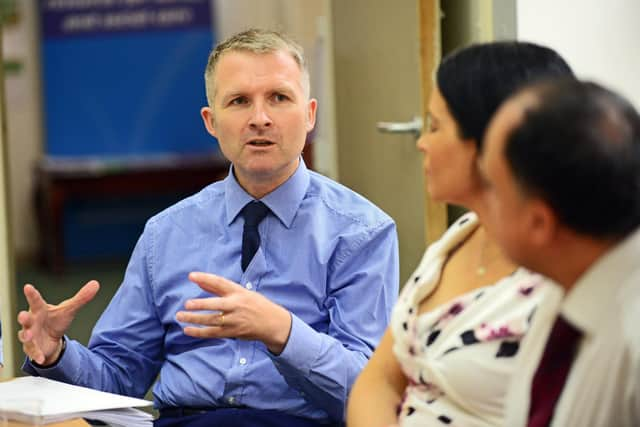There are more people with Covid-19 in Doncaster hospital than ever before - but top health chief says medics are better prepared
and live on Freeview channel 276
Dr Rupert Suckling, director of public health at DMBC, said the data as of October 25 shows that Doncaster has had 6,101 positive Covid-19 cases and the seven-day average rate is 444 per 100,000.
He said the rates are ‘doubling every 10 to 12 days’ but the increase was ‘not getting any faster’. Transmission is said to be across the borough with household visits still the main way the virus spreading.
Advertisement
Hide AdAdvertisement
Hide AdAcross the Doncaster hospital trust, which also includes Mexborough and Worksop as of Tuesday Oct 28, 199 such individuals are in hospital.


This totals 165 at Doncaster Royal Infirmary, 14 at Bassetlaw Hospital and 20 at Montagu Hospital.
Of these patients, 12 require critical care, with four on mechanical ventilation, 20 non-invasive ventilation and seven oxygen.
“The challenge we face right now is the amount of hospital admissions,” Dr Suckling said.
Advertisement
Hide AdAdvertisement
Hide Ad“It’s fair to say that we now have widespread community transmission and it’s prevalent in all age groups.”
But Dr Suckling added that staff were now more knowledgeable around ways to treat patients with Covid-19 and could triage cases faster.
Elective surgery is now more flexible and hospital bosses now plan ahead more to stop operations being cancelled on the same morning.
Advertisement
Hide AdAdvertisement
Hide Ad“What’s different this time is the doctors, nurses, other staff know what to expect and are much better at risk assessment and are starting people on oxygen treatment sooner than before,” Dr Suckling said.
“Where we are seeing the vast majority of people being looked after on what we would call general or acute beds - normal wards basically so intensive care is not the pinch point that it was before.
“What is different is we are seeing day-today decision being made on elective surgery - the NHS collectively is working through a plan through the next few weeks because it’s not ideal for patients to have operations cancelled on the day of procedure.”